How to stop binge eating.
When you think about food all the time - and act on these thoughts - it’s ultimately a form of self harm. You’re doing yourself no good. Outwardly you can be fine: even having small portions with friends, family and work colleagues.
But particularly at night when no one’s looking all your good work and healthy habits go out of the window.
And it’s you that suffers. Eating a lot of food in a short amount of time, regardless of how hungry you are, can have negative effects on your physical and mental health. Over time, binge eating, as it’s called, makes it more likely you'll gain weight, which puts you at an increased risk of obesity, type 2 diabetes, heart disease, and other chronic health conditions.
Tip 1: Ask yourself, “Why am I doing this?”
Everything EVERYTHING hangs on this. Being honest with yourself will help you crack your constant cravings and overeating.
Invariably you eat like this because of stress, anxiety, boredom, loneliness, a break up, a fear - basically somewhere in your life there’s an unhappiness.
We need to find this. You can read my story here, but more of how I can help you later.
As a simple check in now, take a look around your home. In the cupboards, drawers, fridge, secret stashes, the bins look for the following:
- chocolate (bars, yogurts, custard)
- crisps (nachos, tortillas, cheese crackers too)
- pies (sweet and savoury)
- ice cream (lots of flavours, as well as big family tubs)
- sweets (in car doors, in drawers, in your pockets, wrappers in the sofa)
- bread (especially white bread and if you have a cheese toastie maker handy)
- Cereals - you have lots of the well-known brands. These are high in sugar and even salt.
Basically this type of eating and gorging is strongly linked to ultra processed food. The stuff that does you no good. This book explains it really well.
Tip 2: Think about healthy habits.
Give yourself a health audit. You may be overeating at night because your body is compensating for something it needs. Perhaps you aren't eating enough during the day, which leads to insatiable hunger in the evening. Or maybe you aren't getting enough sleep, which leaves your body feeling tired and craving carbohydrate-rich foods. Or you’re may be trying to quell the stress of the day by eating away your feelings at night. Prioritising healthy habits throughout the day helps you combat evening munchies.
Tip 3: Portion control.
It is okay to have a snack at night – or at other times of the day.
It’s when you don't realise how much you're eating when you're distracted. For example, when you crack open a family-sized bag of crisps and munch through the lot without even noticing. Instead of depending on your willpower, or your power of observation to not eat too much, pre-portion snacks so you don't overdo it. Buy single serving bags at the supermarket. Or buy bigger bags and portion out servings when you get home, so they're ready to grab. Or, if you haven't thought that much ahead, put a single serving into a bowl or on a plate and then put the rest of the bag away before you start eating.
Tip 4: Eat enough protein.
Poultry, meat, fish, eggs, tofu, beans, nuts and cheese are all good sources of protein – and enjoying them at mealtimes may help reduce the likelihood of overeating later in the day. Data suggests that eating high-protein meals during the day may cut the desire to eat at night in half. This eating of protein during the day gives your body the necessary fuel while supporting proper digestion and then sleep helps you overcome late night eating.
Tip 5: Track it and write it down.
Keep record of what you’re doing. Write it down. The observable fact. Then you really know what you’re doing. As much as you might not like what you see, you’re being honest with yourself.
Tip 6: Exercise.
Get moving. The more the better. Regular physical exercise quickly:
- aids in weight management
- enhances cardiovascular health
- boosts the immune system
- improves sleep quality - Regular movement can help you fall asleep faster and enjoy deeper sleep.
- changes your mood - for the better. Physical activity releases endorphins — the body's natural feel-good chemicals — reducing your feelings of depression and anxiety
Tip 7: Change your eating habits with hypnotherapy.
You can give yourself a good chance of breaking this habit of overeating. But you have to change the way you think, feel and act.
And it doesn’t have to be a boot camp approach. It can be done calmly with hypnotherapy.
This is simply a deep state of relaxation where you see things for what they are. Simply events.
What I’m saying is you can dial down life’s stresses and anxieties in such a way that you feel you don’t have to react to them. Simply let them go.
What you’re doing is forming new habits that are kinder to yourself than overeating.
Under hypnosis you can reconsider your actions, take a good look around at what you’re currently doing and let it go.
Your hypnotherapy sessions in greater detail.
Ideally, for a start, I’d like to see you once a week.
We'll work together to break down your problems into their separate parts, such as your thoughts, physical feelings and actions.
Then, you and I work out how to change unhelpful thoughts and behaviours.
Now, over to you. It’s what you do/practise between our sessions in your daily life - your brain re-training - that determines how quickly and effectively you change for the better in your everyday life.
And what exactly will we agree you do between sessions?
I’ll teach you self-hypnosis. Something you can take away and practice.
Other things could be as simple as a daily Thought Diary (how you’re thinking, feeling, acting and what are the triggers), or going for a run - seriously, the difference is powerful.
Where you and me and hypnotherapy really make a difference
Working together can:
Save you money. What we do together can be completed in a relatively short period of time compared with other talking therapies. As long as you commit to change and do the brain re-training between sessions you shouldn’t need me for too long.
Be practical. You can use what we do in everyday life long after the treatment has finished.
Be all about you. We’re focusing on your capacity to change yourself.
All you need to make this work is three things
- (1). Commitment. Believe in the process. It’s also what I’m here to help you with. Just like a teacher does for a pupil, or a coach with an athlete.
- (2). Consistency. Come every week. Let your learnings build week after week. Attendance is in itself a good habit you’re forming.
- (3). Confrontation. Face your emotions. Why you binge eat? You may experience initial periods where you're anxious or emotionally uncomfortable. Don’t worry. I’ll help you.
Who am I?
I’m James Thomas. My long-winded title is Cognitive Behavioural Hypnotherapist. I use hypnosis, amongst other techniques, to apply CBT to deal with your stresses, anxieties, or whatever it is that’s causing you to eat too much.
I cover Yorkshire and Lincolnshire with rooms in Leeds, York, Lincoln and Louth.
You can get in touch with me at jamesthomas@thegentlemind.co.uk or call 07787563099.





